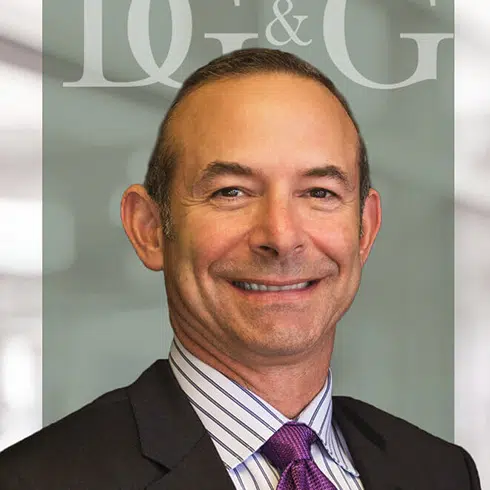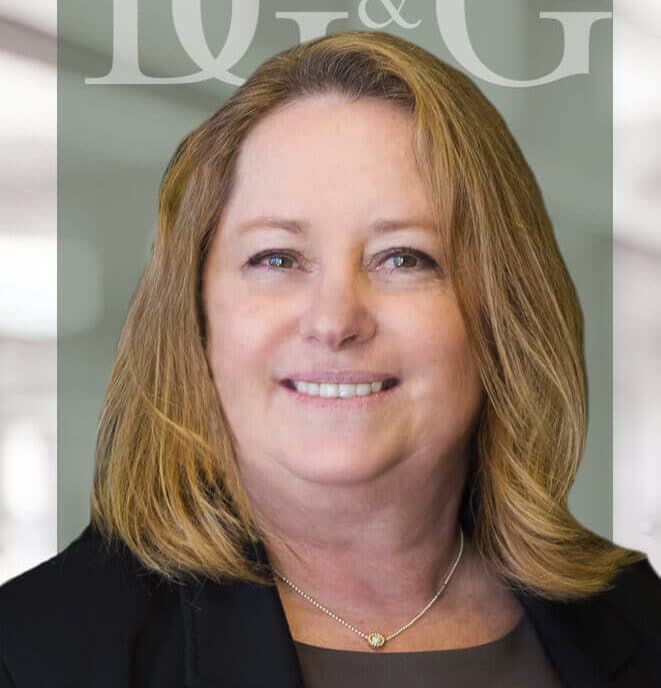
Whether you’re dealing with your insurer or the other driver’s company, rental car coverage rules can be confusing and frustrating. It’s important to understand your insurance coverage, what your auto insurance policy includes, such as rental car reimbursement, and exactly what your claim covers, including which damages and expenses are paid for, to avoid unexpected costs after an accident.
In this guide, we’ll break down everything you need to know about rental car coverage after an accident, especially in San Francisco. We’ll also discuss the reasons a settlement might be delayed and when to seek help from a Delfino Green & Green car accident claim lawyer in San Francisco. For more on personal injury services, visit our personal injury law page.
Who is Responsible for the Rental Car Bill?
Before we can determine how long a rental is covered, we first need to establish who is paying. Determining financial responsibility is a key step in figuring out who will pay for the rental car after an accident. If the at-fault driver caused the accident, their driver’s insurance company is typically responsible for covering the rental car costs. The source of the payment is the primary factor that dictates the rules of the coverage. There are generally two scenarios.
After an accident, it is important to exchange information with any other drivers involved. This helps ensure that all parties have the necessary details to file claims and protect themselves legally and financially.
Be sure to review the other driver’s policy to understand any restrictions or limitations on rental car coverage.
Scenario 1: The Other Driver Was At Fault (A Third-Party Claim)
If the other driver is clearly at fault for the accident, their car insurance company is responsible for your damages. The at-fault driver’s insurance is also responsible for covering your rental car costs in addition to other damages. This is known as a third-party claim. This responsibility doesn’t just include fixing your car; it also includes compensating you for the “loss of use” of your property. Your rental car falls under this category.
In this situation, the at-fault driver’s property damage liability coverage will pay for a rental vehicle that is reasonably similar to your own. You shouldn’t be forced to go from a 7-seater SUV to a 2-door compact if your family relies on the larger vehicle. You will need to file a claim with the other driver’s insurer, and they will authorize the rental. When filing for rental reimbursement, be sure to submit all required documentation and receipts to the other driver’s insurance company to support your claim.
Scenario 2: You Were At Fault or Fault is Disputed (A First-Party Claim)
If you were at fault or if the insurance companies are still investigating and disputing liability, you will need to turn to your insurance policy. Standard liability insurance does not cover your rental car costs. For this, you need a specific type of optional coverage called rental reimbursement coverage or “loss of use” coverage.
If you have this coverage, you can use it immediately while the fault is being determined. However, rental reimbursement coverage is typically only available if your policy includes comprehensive and collision coverage, as comprehensive coverage and collision coverage are prerequisites for this benefit. In this scenario, your own insurance acts as primary coverage, meaning it covers your rental expenses first before seeking reimbursement from the at-fault party’s insurer. If the other driver is later found to be at fault, your insurance company will typically seek reimbursement from the at-fault driver’s insurer, a process called subrogation.
Actionable Advice: Check your personal auto insurance policy’s declaration page now. Look for “Rental Reimbursement” or a similar term. Take note of the coverage limits, which are usually expressed as a daily limit and a total maximum (e.g., $40 per day, up to a maximum of $1,200). Knowing these figures is crucial before you need them.
Car Rental Options After an Accident
After a car accident, securing a reliable rental car is often essential to keep your life moving while your own vehicle is out of commission. Fortunately, there are several rental car options available, and understanding how to access them can save you time and money. Many insurance companies have established partnerships with major rental car companies, such as Enterprise Rent-A-Car, to streamline the rental process for policyholders. These partnerships often provide preferred rates, direct billing, and hassle-free service when you need rental car reimbursement after an accident.
When choosing a rental car, consider your daily needs—whether you require a compact car for city driving or a larger vehicle for family transportation. The rental duration will typically depend on your insurance policy’s rental car reimbursement coverage and the estimated repair time for your vehicle. Be sure to ask about additional services, such as roadside assistance or supplemental liability protection, which can offer extra peace of mind during your rental period.
Before heading to the rental company, review your insurance policy to confirm that rental reimbursement coverage is included and to understand your coverage limits. Knowing these details will help you avoid unexpected out-of-pocket expenses and ensure you select a rental car that fits within your policy’s guidelines. If you’re unsure, your insurance agent can clarify what your policy covers and recommend the best rental company options for your situation.
How Long Does Insurance Cover a Rental Car?
Insurance companies, whether yours or the other party’s, usually pay for a rental car for a reasonable repair period, not indefinitely. This period is generally between 14 to 30 days, but there’s no universal standard. The insurance adjuster will evaluate how long it should take to fix your car and authorize coverage accordingly. The rental car company will typically coordinate with your insurer to authorize and provide the rental vehicle during the approved period.
A “reasonable repair period” is not an arbitrary number of days set by the adjuster. If your vehicle is totaled, the insurer typically pays for a rental until they make a settlement offer. Once they issue the offer, coverage usually ends.
Keep in mind that the insurance company’s rental car policy after an accident may differ based on whether you’re using your coverage or the at-fault party’s.
This period can be broken down into a few key phases:
- Inspection and Estimation: The time it takes for an adjuster to inspect the vehicle, assess the damage, and approve a repair estimate. This should only take a few days.
- Repair Time: The actual number of labor hours the body shop needs to complete the repairs. If a shop estimates 40 hours of work, that translates to about one week of repair time. Insurance will typically cover the cost of a rental car while your damaged vehicle is being repaired at a repair shop, auto repair shop, or approved repair facility.
- Potential Delays: Sometimes, unavoidable delays occur, such as waiting for a specific part to be shipped. As long as these delays are legitimate and documented by the body shop, the rental coverage should continue.
The key is that you must act diligently. If you delay taking your car to a shop for two weeks after the insurer has approved it, they will likely refuse to pay for the rental during that time.
When Does Rental Car Coverage End After a Crash?
Understanding the specific events that trigger the end of rental coverage is vital. Rental car reimbursement coverage only applies in the event of a covered loss, meaning your rental expenses are only covered if your vehicle is being repaired due to an insurance-covered incident. Optional coverages like a collision damage waiver offered by the rental company may provide additional protection for the rental vehicle, but are separate from standard rental reimbursement coverage. Rental reimbursement insurance and rental car reimbursement are designed to help cover rental costs during this period, not for routine maintenance or unrelated repairs. An insurance adjuster may tell you “your time is up,” but the end of coverage should be tied to one of these concrete milestones.
1. When Your Car Repairs are Completed
This is the most straightforward endpoint. The insurance company will be notified by the body shop once the repairs on your vehicle are finished. At that point, the insurer will typically end the rental coverage that same day or the next business day. They are obligated to give you reasonable notice to pick up your vehicle and return the rental.
2. When Your Car is Declared a “Total Loss”
If the cost to repair your vehicle exceeds its actual cash value (ACV), the insurance company will declare it a total loss. This is a critical juncture where many people encounter problems with their insurance company’s rental car policy after an accident.
When your car is totaled, the rental coverage does not end immediately. The insurer’s obligation for “loss of use” continues until they have made a settlement offer for your totaled vehicle and have issued payment. Typically, coverage will extend for a few days (e.g., 3 to 5 days) after you have received the settlement check. This grace period gives you time to find and purchase a replacement vehicle.
A Common Problem: An adjuster might call you, tell you the car is a total loss, and state that your rental coverage ends that day. This is often improper. The coverage should continue until the settlement is formally offered and paid. If you face this situation, you should immediately push back and, if necessary, seek local help with a rental car after an accident.
3. When You Reach Your Policy Limits
If you are using your rental reimbursement coverage, the policy limits are firm. For example, if your policy is for $40/day and a $1,200 maximum, your coverage will end under two conditions:
- You have had the rental for 30 days ($40 x 30 = $1,200).
- Your car is repaired in 20 days, but your rental costs $50/day. You are responsible for the $10/day overage.
In a place like San Francisco, where rental costs can be high, it’s easy to exceed a $30 or $40 daily limit. You are responsible for the difference out-of-pocket. This is a primary reason why having adequate coverage limits is so important. When seeking car accident rental reimbursement in San Francisco, be prepared for local rental rates to potentially exceed the standard limits offered by your policy.
Insurance Company Rental Car Policy After an Accident
Most insurance companies in California, including those operating in San Francisco, offer rental reimbursement coverage as an optional add-on to your policy. This coverage typically pays:
- A daily rental rate (e.g., $30–$50/day)
- Up to a maximum amount per claim (e.g., $900 total)
Different insurance policies may provide coverage for rental cars in different ways, and it’s important to understand how your policy handles insurance claims related to rental cars.
If you don’t have this coverage, you may still get a rental through the at-fault driver’s insurance—but only if liability is established.
Tip: Always verify what your policy says about rental cars. Knowing the specifics of your insurance rental car policy in San Francisco can prevent billing surprises. You may want to purchase insurance or additional insurance for rental cars, and consulting an insurance agent can help you understand your options and coverage details. When you arrive at the rental car counter, be prepared to present your insurance information and rental agreement details.
What to Do if Your Rental Coverage Runs Out
If your rental car coverage is about to end—or has already expired—here are some steps you can take:
- Contact your insurer: Ask about extensions, especially if delays weren’t your fault
- Request help from the other driver’s insurer: If they’ve accepted liability
- Keep receipts: In case you can get reimbursed later
- Talk to a lawyer: Especially if your settlement is stalled or disputed
A skilled attorney can often pressure insurers to resolve your case faster or reimburse you for additional costs.
Reasons for a Delayed Car Insurance Settlement and How It Affects Your Rental
One of the most stressful experiences is when your car is sitting in a lot, your rental coverage is about to expire, and you feel stuck. The question of “Why is my insurance claim taking so long?” is one we hear frequently at Delfino Green & Green. Understanding the reasons for delays can help you navigate the process more effectively.
- Liability Disputes: The other driver’s insurer may refuse to accept 100% fault. They might argue you were partially to blame for reducing their payout. This investigation can take weeks, and during that time, they may refuse to authorize a rental, forcing you to use your own coverage if you have it.
- Complex Repairs & Parts Delays: Modern cars are complex. A seemingly minor fender-bender can involve damage to sensors and electronics. If a crucial part is on backorder, especially for foreign or specialty vehicles, repairs can be delayed for weeks or even months. While the insurer should cover this, adjusters may try to pressure you to end the rental.
- Lowball Settlement Offers: In a total loss scenario, the insurer may offer you a settlement that is far below your vehicle’s actual cash value. The negotiation process that follows takes time. During these negotiations, your right to a rental car continues, but an adjuster may try to use the rental coverage as leverage to get you to accept their low offer.
- Poor Communication: The adjuster may be overworked and unresponsive. The body shop and the insurer may not be communicating effectively. This administrative friction can add significant delays to your car accident settlement process timeline. To help avoid unnecessary delays, it is crucial to submit a detailed claim with comprehensive documentation and thorough evidence to support your request for rental reimbursement.
If you are facing these issues, you are no longer just dealing with a simple repair claim; you are in a dispute. This is often the point where you need local legal help for slow car accident settlements.
The San Francisco Factor: How Location Impacts Your Rental Claim
Pursuing a claim for rental car coverage after an accident in San Francisco has unique challenges.
- Higher Costs: Both car repair labor rates and rental car prices are higher in the Bay Area than in many other parts of the country. This means you are more likely to hit the total maximum limit of your rental reimbursement policy faster. Similar issues are seen in Los Angeles County, where high accident rates and elevated rental car expenses also create significant challenges for accident victims.
- Busier Repair Shops: High demand can mean it takes longer to get your car into a reputable body shop, potentially creating a gap in coverage if the insurer argues the delay was your fault.
- Complex Driving Environment: The density of traffic, hills, and frequent stop-and-go conditions can lead to more complex liability disputes, prolonging the investigation phase.
Because of these factors, what might be a straightforward claim elsewhere can become more contentious here. Having a car accident claim lawyer in San Francisco who understands the local landscape can be invaluable.
Why Choose Delfino Green & Green for Car Accident Claims
With decades of experience handling complex car accident cases in California, our team understands the local insurance landscape. We take the pressure off you by managing communication with the insurer and advocating for your full compensation.
We’ve helped many San Francisco residents get reimbursed for rental cars and more, especially when claims were delayed or wrongly denied.
Final Thoughts: Protecting Yourself After a Car Accident
To recap, how long insurance will pay for a rental car after an accident depends on your policy, who was at fault, and the length of the repair or settlement process. Knowing your rights and acting quickly can make all the difference.
If your rental coverage has ended but your case hasn’t been resolved, you may need legal help. Delfino Green & Green is proud to serve accident victims across San Francisco, helping them navigate the complicated insurance process and recover what they’re owed.
Need help with your car accident claim or rental reimbursement? Contact Delfino Green & Green today to speak with a trusted car accident lawyer in San Francisco.
Disclaimer: This content is for informational purposes only and does not constitute legal advice. For personalized legal assistance, please contact Delfino Green & Green directly.



